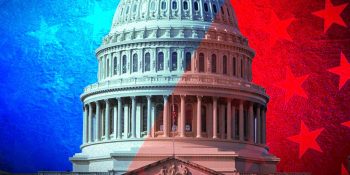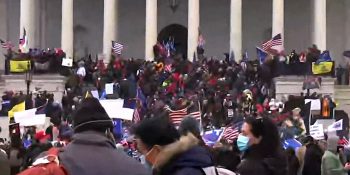Helps launch Biden-Harris administration’s tour to highlight infrastructure investments that will build resilience in rural communities
LYONS, Colo. — Secretary of the Interior Deb Haaland visited Colorado today, where she and U.S. Agriculture Secretary Tom Vilsack met with federal wildland fire leadership to discuss local, state and federal wildland fire preparedness and response that will be bolstered by historic investments through President Biden’s Bipartisan Infrastructure Law.
The visit also helped launch the Biden-Harris administration’s Building A Better America rural infrastructure tour, which will highlight how infrastructure investments from President Biden’s Bipartisan Infrastructure Law will make a transformative and lasting impact in communities across rural America.
Secretaries Haaland and Vilsack joined Governor Jared Polis, Senators Michael Bennet and John Hickenlooper, and Representatives Joe Neguse and Ed Perlmutter for a visit to Jeffco Airtanker Base in Broomfield. The Secretaries received a joint operational briefing outlining the state of federal firefighting resources and what is being done to address an already active fire year.
During the briefing, Secretary Haaland highlighted the importance of how the Interior Department’s Five-Year Treatment, Monitoring and Maintenance Plan will work together with the Agriculture Department’s 10-year strategy to use all available tools to create resilient landscapes, protect fire-adapted communities, and support safe, effective wildfire response. She also detailed how the Bipartisan Infrastructure Law provides $5.1 billion — including $1.5 billion for Interior — over the next five years to help bolster the federal response to the increasingly complex fire environment, which is driven by climate change, extreme heat, and prolonged drought conditions.
Secretaries Haaland and Vilsack outlined their vision and goals for managing wildland fire in a joint memo to wildland fire leadership. In addition to fire suppression investments from the Bipartisan Infrastructure Law, the memo highlights other strategic priorities to reduce wildfire risk, restore ecosystems, engage in post-fire recovery, and make communities more resilient to fire – especially those in rural, Tribal, and historically underserved communities.
Secretary Haaland, Senators Bennet and Hickenlooper, and Representative Neguse then visited Heil Valley Ranch in Boulder County, which was severely impacted by the Cal-Wood fire in 2020. The fire consumed 5,000 acres in five hours and in total covered over 10,000 acres. The leaders heard about ongoing recovery operations to the land and highlighted the importance of public/private partnerships to complete fuels treatment and post-fire rehabilitation work in an area managed for multiple uses.
Secretary Haaland discussed how the Interior Department is investing $15 million in infrastructure funding in Colorado over the next two years to implement the Department’s Five-Year Plan to reduce fire risk, including projects in the Forest Service’s priority landscapes in Colorado’s Rocky Mountain front. This fuels treatment work supports local communities by reducing wildfire risk and employing Tribal members, youth and veterans. Nearly half of the work each year will support efforts in areas with low rural capacity.
In addition to mitigation and response investments, the Bipartisan Infrastructure Law invests in the federal firefighting workforce by creating a new occupational series for wildland firefighters as well as programs to support their mental health and well-being. Even before this law was passed, the Biden-Harris administration took action to hire and retain the fire workforce needed to take on the growing wildfire threat. Those actions include closing the pay gap between federal and state, local and private firefighters to ensure no federal firefighters makes less than $15 an hour.
In December 2021, the Interior Department, USDA and the Federal Emergency Management Agency (FEMA) jointly announced the formation of a Wildland Fire Mitigation and Management Commission, made up of representatives from federal, state, Tribal, local and non-governmental interest groups, to recommend strategies and plans to combat the wildland fire crisis. That group will begin work once members have been selected and their recommendations submitted to Congress.














